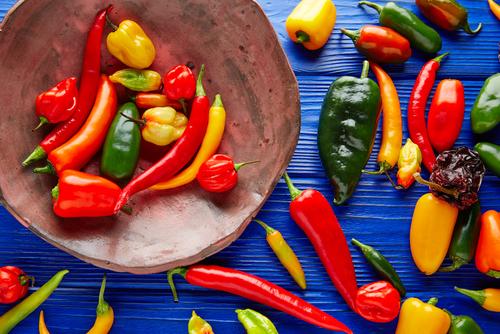Want to decrease your risk of death? Try eating hot red chiles — or so you might think based on a recent paper in the journal PLOS One. Drs. Mustafa Chopan and Benjamin Littenberg from the University of Vermont School of Medicine analyzed data from the NHANES III survey, 1988-1994. They were particularly interested in possible associations between the use of spices and health, so they examined the data for consumption of red hot chili peppers and ascertained if there were any link between that consumption and risk of mortality from any cause.
Data on the frequency of hot red chili pepper consumption was derived for over 16,000 adults who took part in the NHANES surveys. Participants were followed for a median of nearly 19 years, and the primary independent variable was monthly consumption of hot red chili peppers. There were nearly 5,000 deaths observed. The relative risk of death was 36 percent lower in the chili consumers compared to the non-consumers. But before you rush out to get your jalapenos or habaneros, consider the problems with the study.
First, there's no information on amount of chilis consumed — would two per month do the trick, or would you have to down twenty? Also, there were significant demographic differences between frequent consumers and non-consumers. For example, the chili consumers were significantly more likely to be young, Hispanic (why am I not surprised) males who were more likely to be current smokers and of low economic status. Also, there was no explanation of why only red chilis were considered — did hot green chilis have no association with mortality rates? And how about sweet peppers? Was it the capsaicin (the 'hot' ingredient in many foods) that provided the association, or other hot chili components?
In all, the data aren't terribly convincing if you're interested in learning what dietary components really contribute to health. It seems just as likely that relaxing to some music would provide as much of a benefit as this study seems to show. Try the guys below:





